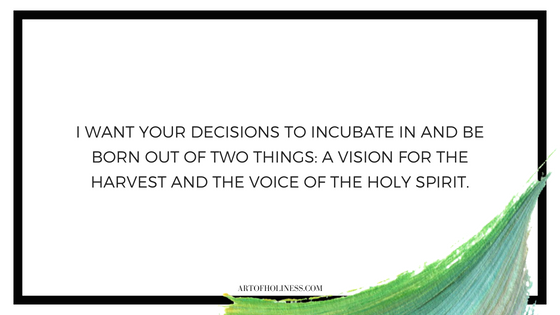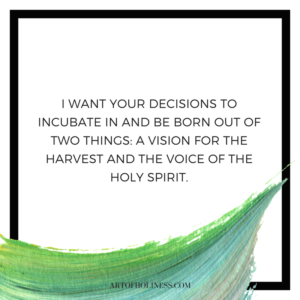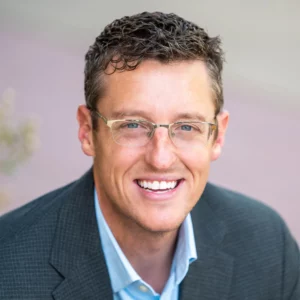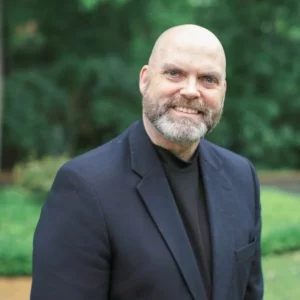Do not be deceived: God is not mocked. Whatever one sows, that will he also reap. — Galatians 6:7
This little gem of a verse isn’t brain surgery. Paul isn’t explaining some great mystery or even proclaiming a new law to live by. He is simply reminding us how reality works. We reap what we sow. We won’t get figs from an apple tree or chicken sandwiches from a cow. Put tomato seeds in the ground and expect tomatoes, not corn.
The ability to look at conditions and ride them out to conclusions is a mark of maturity. That’s why we train children by giving them consequences when they misbehave. They are not naturally wired yet to think down the road so they must be trained in that discipline. A child’s thought life is very much present-tense. A friend’s child proved this recently when he snuck out of bed late one night and ate a tube of toothpaste. Clearly, his “if-then” function was not operating at a high level. Let’s just say it didn’t work out well for him.
We reap what we sow.
This principle becomes incredibly relevant in a year when many reading this blog are making personal choices about the future of our denomination. In the coming season, each of us will be faced with a choice about how we will lead or where we will continue to worship based on what we value. Keep in mind as you listen, pray, lead and love that we reap what we sow. A decision to passively go with the flow may find you surprised and disappointed when things don’t turn out as you’d hoped.
Our decisions have consequences. Our theological choices, our moral choices, our parenting choices, our spiritual choices, even our eating choices all have consequences and most of those choices have the potential to shape not just our lives but our world.
Decisions determine destiny. My decisions determine the direction my life takes and my decisions make an impact on other lives and destinies, too. So learning to make a better brand of decision becomes an important thing.
John Maxwell puts it this way: “Sow a thought reap an action, sow an action reap a habit, sow a habit reap a destiny.”
A friend said, “My many and most colossal mistakes were those using the best information available but missing the element of God’s wisdom and blessing (italics mine). I guess I always assumed he would see my brilliance and validate the choice.” I don’t think he is alone in that experience. I suspect lots of us tend to make decisions as if they are an assignment to be graded. We make them, we turn them in, and then hope for the best. But this isn’t God’s best for us and isn’t how we’re taught to make choices. We’re not taught to sow then hope for the best but to learn to sow well so we can be confident about the harvest. We are certainly not taught to put our heads in the sand and hope the storm blows past us.
Here’s what I want for you, my friend. I want your decisions to incubate in something deeper than self-preservation. I don’t want them to start with self-interest or childish bias. I want your decisions to reflect the mind of Christ. Whether you are choosing a theological position, leading a congregation through a crisis, or making a personal choice around spiritual disciplines, I want your choices to rise above the level of emotion to the place where deep calls to Deep.
1. Start with the harvest. What does yours look like?
Have you taken time to dream God’s dreams for your life? Do you have a vision and a goal that is bigger than what’s for supper? What do you want to contribute to the world? What are your gifts? What breaks your heart? Look down the road toward the end game and get a vision for that first. Then back up from that point and ask yourself if what you’re doing now is heading you in that direction.
2. Will what you’re sowing now get you to the harvest you’re hoping for?
Picture what your harvest looks like, then back up from there and ask yourself: Are the things I’m doing now setting up for the harvest I’m hoping for? If I’ve always wanted to read the Bible all the way through but I’ve never actually opened one, I’m probably not going to get there. If I’ve always sensed a call to teach children, then what am I doing right now to point me in that direction? If I want to lead a movement that makes healthy, committed disciples, have I chosen a path that will lead to that end?
3. Are you sowing from the past or for the future?
We’ve all felt the desperation of “If only” thinking. If only I’d gone to college … If only I’d married later in life … If only I’d taken better care of my body … We can drown in ‘if-onlys,” but there comes a time when we have to decide how much we believe in the grace that doesn’t live in the past but challenges us to stand up and start from here. That goes for our personal lives as well as big institutions. We can waste a lot of time discussing what ought to have happened, or we can stand up from here and become part of what happens next.
I want your decisions to incubate in and be born out of two things: a vision for the harvest and the voice of the Holy Spirit. This is where wise choices are born. Wise decisions are incubated in and born out of a vision for the harvest and the voice of the Holy Spirit. Learning to start from this place will change the way you see and affect the world around you.









